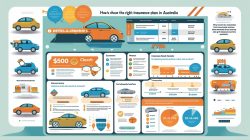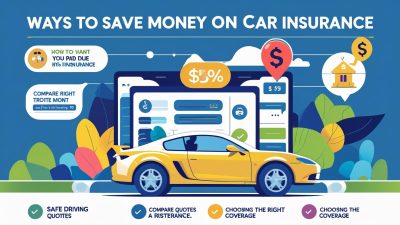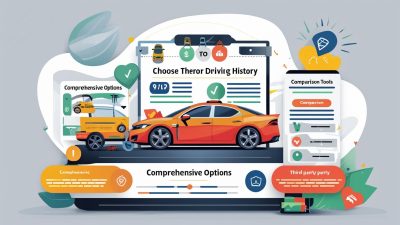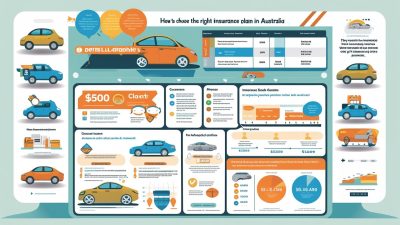Essential Car Insurance for Rideshare Drivers in Australia
Bloggerbanyumas.com – Australia’s growing ridesharing market has significantly changed how we commute. With popular platforms like Uber, Lyft, and Ola becoming household names, many individuals are embracing the opportunity to drive for a living. While the flexibility and potential for extra income are appealing, rideshare drivers face unique risks that can impact their livelihood. This is where having the right car insurance becomes crucial. For rideshare drivers, securing the appropriate insurance coverage is essential not only for legal protection but also for financial security.
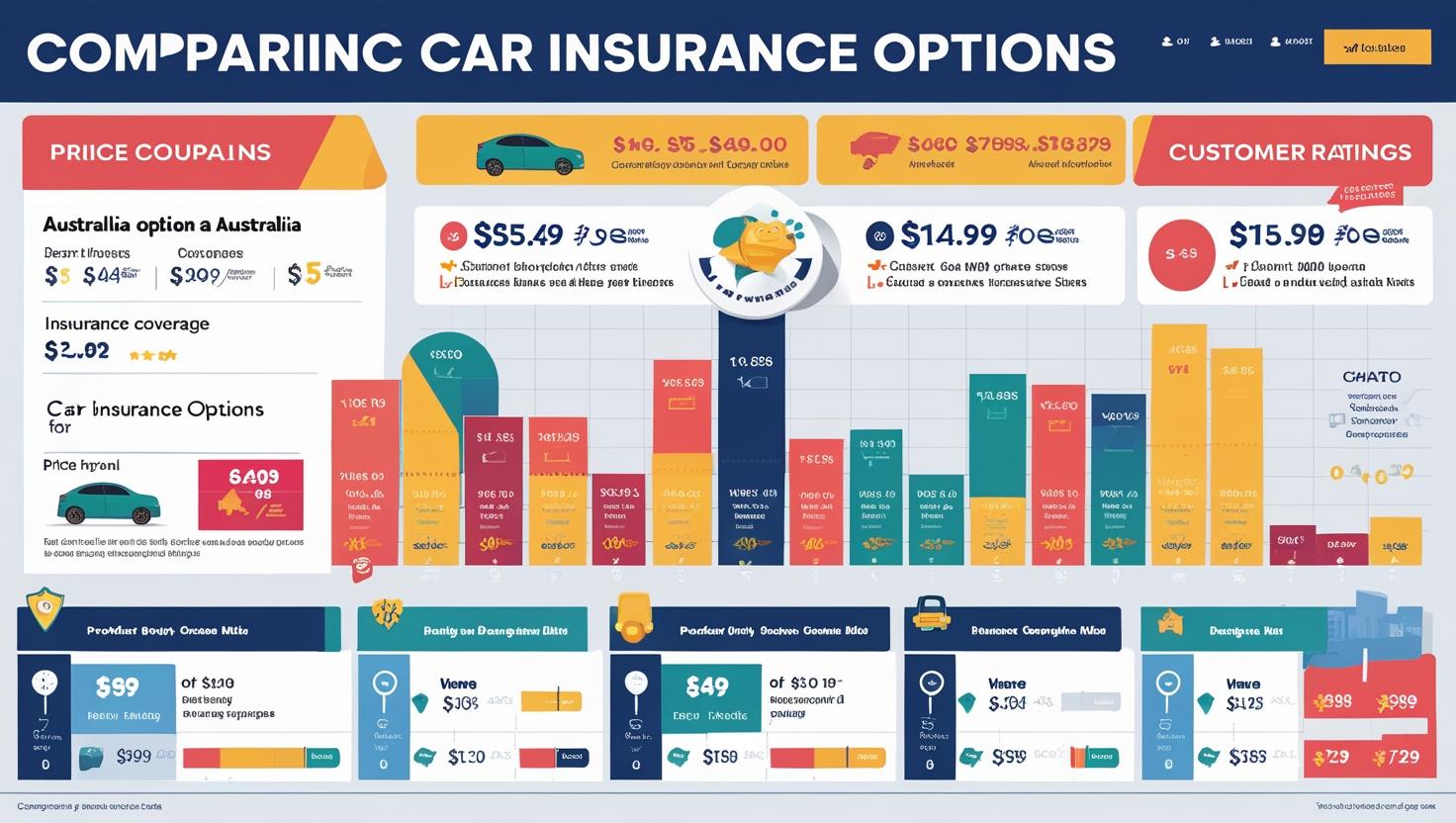
Rideshare insurance policies are specifically tailored to address the needs of individuals who use their personal vehicles for business purposes. It is important for drivers to understand that traditional car insurance policies may not offer adequate protection when they are working as a rideshare driver. With increased exposure to accidents, higher-mileage driving, and unique liability concerns, rideshare drivers must be diligent in selecting the right insurance to safeguard both their vehicles and their passengers. In this article, we explore why essential car insurance is crucial for rideshare drivers in Australia, the types of coverage available, and how to ensure you have the right protection in place.
1. Understanding the Risks for Rideshare Drivers
Rideshare drivers in Australia face a unique set of risks compared to regular vehicle owners. The primary difference lies in the frequency and nature of the driving. Rideshare drivers spend extended hours on the road, often during peak traffic times and at night, both of which can increase the likelihood of accidents. The risks associated with driving for a rideshare service can be categorized as follows:
- Increased Exposure to Accidents: The nature of ridesharing requires drivers to travel more frequently, covering longer distances and navigating through busy urban areas. This leads to a higher probability of accidents, whether it’s a minor fender bender or a more serious collision.
- Passenger Liability: When transporting passengers, rideshare drivers are responsible for their safety during the trip. Accidents involving passengers present a unique liability issue that regular drivers typically do not face. In the case of an injury or property damage to passengers, rideshare drivers could be held liable if they do not have the proper coverage.
- Higher Mileage and Wear and Tear: Unlike regular car owners who use their vehicles for limited personal travel, rideshare drivers rack up much higher mileage. This leads to greater wear and tear, which can impact the car’s overall condition, and increase the likelihood of mechanical failure or accidents. Higher mileage can also make repairs more expensive, leading to higher insurance premiums.
- Legal and Regulatory Risks: Rideshare drivers in Australia are subject to both state and federal regulations that govern their operations. In addition to adhering to transport safety laws, rideshare drivers must also comply with insurance requirements specific to their role as a business operator. Not having the right coverage can result in fines, penalties, or even the suspension of their ability to operate as a rideshare driver.
2. Why Traditional Car Insurance Isn’t Enough for Rideshare Drivers
Traditional car insurance policies, such as comprehensive or third-party policies, are designed to protect drivers in personal driving scenarios. These policies cover basic risks like accidents and theft, but they may not provide sufficient coverage for rideshare drivers. The key issue arises from the distinction between personal driving and driving for a commercial purpose, such as transporting passengers for a fee.
- Personal vs. Commercial Use: Most standard car insurance policies exclude coverage for accidents that happen while driving for business purposes, including ridesharing. When a driver is using their car for work, even part-time, the vehicle is considered a commercial vehicle. As a result, personal car insurance policies often won’t cover accidents or damages incurred while operating as a rideshare driver.
- Exclusion Clauses: Many personal car insurance policies explicitly state that they do not cover accidents that occur while the vehicle is being used for commercial purposes, such as ridesharing or food delivery services. This clause could leave drivers in a difficult position if they are involved in an accident while working for Uber, Lyft, or any other rideshare platform.
- Financial Exposure: Without the right insurance, rideshare drivers face the risk of being personally liable for any damage to their vehicle, damage to another person’s property, or injuries sustained by passengers. In the worst-case scenario, this could result in significant out-of-pocket expenses, including repair costs, medical bills, and even legal fees.
3. The Importance of Rideshare Insurance
Rideshare insurance is specifically designed to address the risks associated with using a personal vehicle for business purposes. This insurance can offer several key benefits to drivers, including:
- Protection During Rideshare Activities: Rideshare insurance provides coverage when a driver is operating their vehicle as part of a ridesharing service. It covers risks such as accidents involving passengers, damage to the vehicle, or third-party damage during the rideshare trip.
- Comprehensive Coverage: Just like standard comprehensive insurance, rideshare insurance can protect the vehicle against a wide range of risks, including theft, fire, vandalism, and natural disasters. This type of insurance ensures that a driver’s car is covered regardless of whether the vehicle is being used for personal or commercial purposes.
- Liability Coverage: Rideshare drivers face unique liability risks when transporting passengers. Rideshare insurance policies typically offer liability coverage, which protects drivers if they are found responsible for an accident or injury involving a passenger. This coverage can extend to medical expenses, legal fees, and compensation for damages caused to other vehicles or property.
- Flexible Options: Some rideshare insurance policies offer flexible options that allow drivers to customize their coverage based on their specific needs. For example, some policies offer “gap” coverage, which bridges the gap between the rideshare company’s insurance and the driver’s personal insurance. This ensures that the driver is fully protected during all stages of the rideshare process.
4. Types of Rideshare Insurance Coverage
In Australia, there are several types of insurance coverage available for rideshare drivers. Each type of coverage serves different needs, and drivers should carefully consider the level of protection they require based on their driving habits and personal preferences.
- Rideshare Insurance Add-ons: Many major insurers offer add-on coverage for drivers who are already insured with a standard policy. These add-ons provide coverage for accidents and damages while driving for a ridesharing company, ensuring that the driver is fully protected. These add-ons are a cost-effective way to ensure that you have the right coverage without purchasing a separate policy.
- Standalone Rideshare Insurance: In some cases, rideshare drivers may need a standalone policy. This type of insurance is specifically designed for drivers who use their vehicle for commercial purposes, including ridesharing. Standalone rideshare insurance typically includes comprehensive coverage for accidents, liability, and property damage, as well as protection for the driver’s vehicle when it is not in use for ridesharing.
- Third-Party Insurance: Third-party insurance is a more affordable option for drivers who want basic coverage. This type of insurance covers damage caused to other vehicles and property in the event of an accident, but it does not cover damage to the driver’s own vehicle or injuries sustained by the driver or passengers.
- Comprehensive Rideshare Insurance: Comprehensive rideshare insurance provides the highest level of protection, covering accidents, vehicle damage, passenger injuries, and third-party liabilities. It is ideal for drivers who are looking for peace of mind and want to ensure that all aspects of their ridesharing work are covered. While it may be more expensive than other options, it offers the most extensive coverage.
5. How to Choose the Right Rideshare Insurance in Australia
When selecting the right rideshare insurance, it’s important to compare policies from different insurers and carefully assess the coverage options available. Here are some key factors to consider when choosing your rideshare insurance:
- Insurance Provider Reputation: Choose an insurer with a solid reputation for customer service and claims handling. Reading online reviews, checking the insurer’s financial stability, and researching the company’s claims process can help ensure that you’re working with a reliable provider.
- Coverage Limits: Make sure the coverage limits offered by the policy are adequate to cover potential liabilities. This includes ensuring that liability coverage is sufficient to protect you from potential lawsuits or injury claims.
- Cost of Premiums: Compare the cost of premiums across different insurers to find the best balance between price and coverage. While it’s tempting to opt for the cheapest policy, make sure that the policy provides adequate protection for your needs.
- Policy Exclusions: Carefully read the fine print of the policy to understand any exclusions or limitations. For example, some policies may exclude coverage for certain types of accidents or incidents, such as those occurring during off-peak hours or outside of a specific geographical area.
- Flexibility and Add-ons: Look for insurers that offer flexible coverage options and the ability to add extras such as roadside assistance, hire car coverage, or gap insurance. These add-ons can offer additional peace of mind and value for money.
Conclusion
For rideshare drivers in Australia, having the right car insurance is not just a legal requirement, it is also a critical aspect of protecting your income and personal assets. Rideshare insurance provides the necessary coverage to safeguard against the risks of driving for a ridesharing company. By selecting the right policy, drivers can ensure that they are protected from financial hardships in the event of an accident, injury, or property damage. As ridesharing continues to grow in popularity, securing the proper insurance coverage is more important than ever for every Australian driver in the gig economy.




